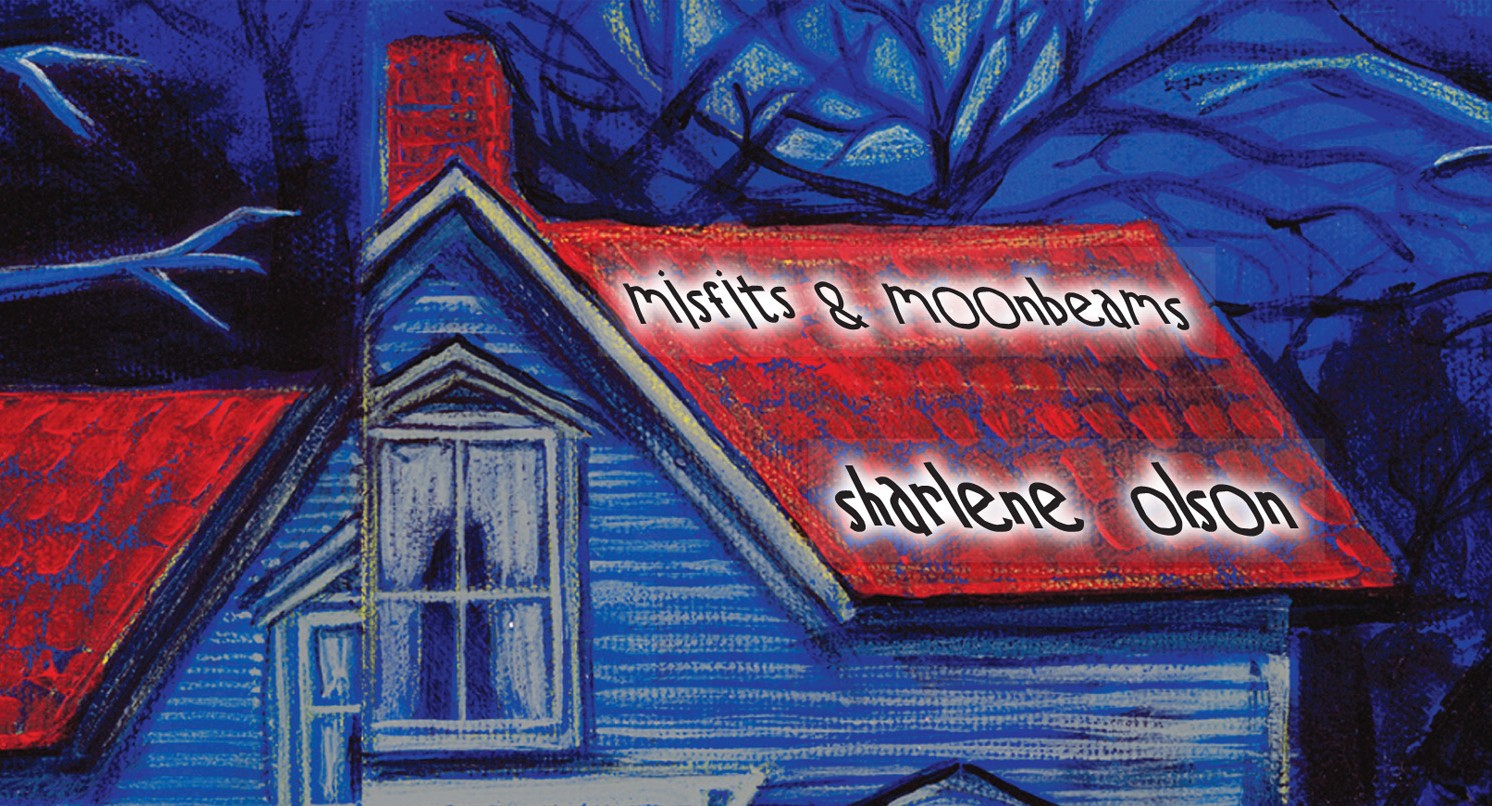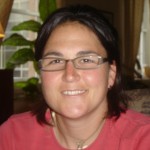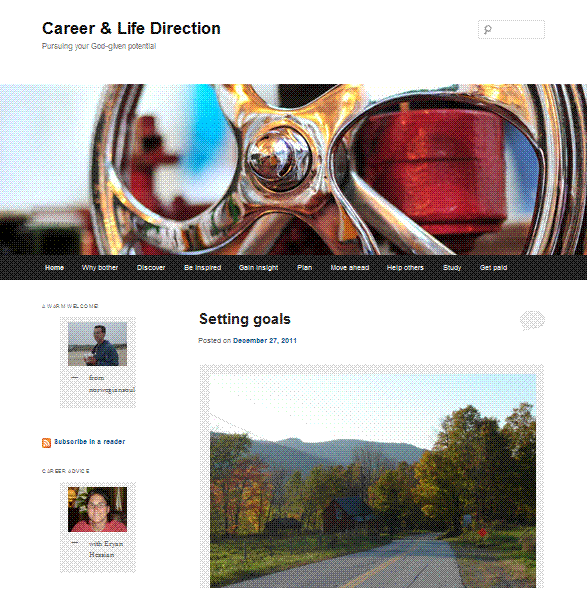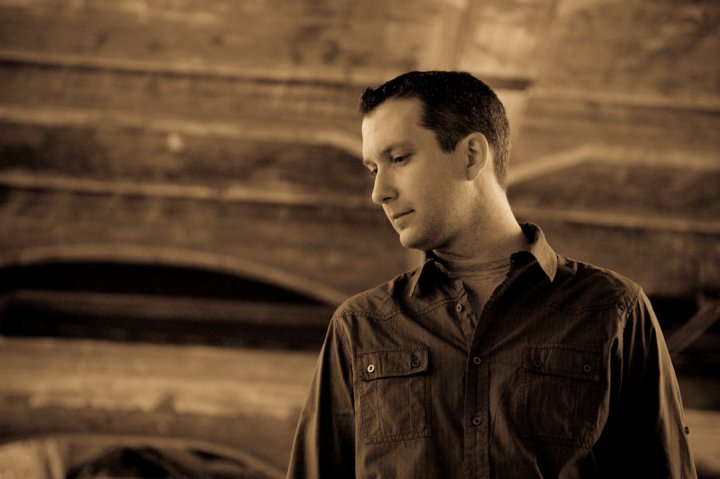Leah’s journey so far
- At October 12, 2013
- By Nathan
- In Career & Life Planning
 0
0
Today Leah Kostamo, co-founder of A Rocha in Canada, shares lessons from her life journey
When I was twenty-one years old I heard God’s call. I was sitting on the grass outside the University of Arizona library, when I heard (with the ears of my heart, yet no less clearly than if it had been the ears of my ears!), “Go ye on staff with Campus Crusade for Christ.” And my heart sank right into my toes. This is not what I wanted to do. Firstly, because I wanted to go feed starving people in Africa. Secondly, because I wasn’t the “crusading” type.
But after three pretty miraculous confirmations, I packed my bags and headed off to the University of Idaho to fulfill Christ’s Great Commission of making disciples of all nations. Cue the big bass drum…Dum, dum, dum!
Look for that intersection between your greatest gifts and the world’s greatest needs
And I felt like I had come home. If I could have, I would have pulled up an armchair at the hearth of that school and stayed forever. But graduate school is a fast moving train and in what seemed like a nanosecond I had disembarked and was standing at another crossroads.
This time around I barely had time to pray, let alone fast. Within the span of a week, a sure-fire job fell through, a roommate made an offhand comment about a wonderful school overseas, I called the administrators of said school who said they were looking for someone with my exact qualifications, and three people independently offered to fund my posting. Et, voila! A few weeks later I was on a plane to teach at a college on the shores of the Baltic Ocean.
And again I felt like I had come home.
So, to recap:
- Existential call of God, which I heed as an act of obedience – feels good.
- Silence of God, so I follow my heart – feels like home.
- Circumstances and miraculous provision dictate call – again, home.
But the big daddy of vocational callings was still on the horizon. At thirty-two I got married and moved back to Canada where my husband Markku and I held our vocational future up to the heavens for guidance and blessing. We stood in this posture for nearly two years (long enough for our arms to get good and tired!).
By the end of that time it was clear that money was not to be a deciding factor in whatever we did. And barring a miraculous call, we would follow Frederick Buechner’s advice and look for that intersection between our greatest gifts and the world’s greatest needs.
Enter A Rocha. Weird name, I know. It means “the rock” in Portuguese and began as a Christian environmental centre on the coast of Portugal nearly 20 years previous. Imagine the Sierra Club, meets a youth hostel, ground the whole idea in Christian community, and you have a flavour of the thing.
A Rocha’s ministry of extending God’s love to all of creation was like the knitting of all the strands of our lives together. From our training in ecology and entrepreneurial leadership (Markku) and campus ministry and education (Leah) to our love for other cultures and community, the work of A Rocha was like a pair of old jeans we stepped into and found that they fit perfectly.
Even so, birthing A Rocha in Canada felt like the labour it was. There were salaries to raise, an environmental centre to acquire, staff to be found, meals to be cooked, and on and on. We shed many a tear of frustration. But more often, our eyes filled with tears of gratitude, especially as we watched the humble, but deeply good work of earthkeeping unfolding all around us; whether that looked like restoring a salmon stream or opening the eyes of a child to the beauty of creation or sitting with a struggling intern.
We watched, astounded, as the tiny seed of an idea grew into a glorious tree in which the birds of the air had come to roost (literally!).
So, to recap once again:
- No rulebook for how God calls — sometimes via a megaphone, sometimes a whisper, sometimes the call just looks like our lives.
- No rulebook for how to confirm God’s vocational calling — it always feels like home, but sometimes that home needs to be built from the ground up with blood, sweat and tears.
So, if there’s no rulebook, what is there?
Well, there’s God’s overarching call – a call to every human being on planet earth to act justly, to love mercy, and to walk humbly with God (Micah 6:8). There’s obviously lots of room for vocational creativity within that calling. Farming, parenting, painting, pastoring, frog and fungi studying — wherever and however we care for people and places with our unique gifts and skills and with an eye toward justice and love, we are sitting in the centre of our calling.
If God blasts you with a megaphone, great. If not, take a step back and take in the wonderful vocational tapestry God has been weaving with the strands of your life already. It will look like what you’re good at and what the world needs.
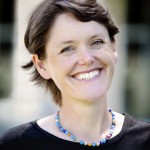 Leah Kostamo is the author of Planted: A Story of Creation, Calling and Community. She likes to read (and write) wise and winsome stories that inspire people to be the change they want to see in the world. She can be found online at leahkostamo.com. She ministers with A Rocha, a Christian conservation organization.
Leah Kostamo is the author of Planted: A Story of Creation, Calling and Community. She likes to read (and write) wise and winsome stories that inspire people to be the change they want to see in the world. She can be found online at leahkostamo.com. She ministers with A Rocha, a Christian conservation organization.
The back of the bus
- At October 05, 2013
- By Nathan
- In Career & Life Planning
 0
0
So I am sitting on this bus, a big city bus, bouncing along from one lonely and depressing street to another. And slowly my bus begins to fill up.
A Hispanic man, probably in his mid-thirties, sits down across from me and quickly becomes preoccupied with his smartphone. It’s just another day. And this is texting time for him, I guess. But what else is there to do on this city bus? We sort of acknowledge each other’s existence, but try to avoid making eye contact. You know how it is. Awkward.
He looks down and I look up and away – off into the distance. There is always more concrete coming. And more of this and that and the other thing. It never seems to end.
Longing for another place inspires many to change their own
Two strangers on a big city bus.
Then, two English girls step inside and make their way to the back. They are both Caucasian and have shoulder-length hair. One is wearing dark sun glasses. Sitting down, they carry on a lively conversation and speak loud enough for everyone to hear. A little too loud. Sounds like they are good friends.
I’m not used to hearing English and almost feel guilty being able to understand what they are saying. Especially since they are talking about relationships and men and sex – right there on the bus. Mostly it’s about relationships gone bad, guys bothering them on Facebook, dates that didn’t work out, and other disappointments. The usually stuff.
Faithfulness is a foreign concept. As far as I can tell, the main point is to communicate that they are still desirable and available. It’s too bad that they struggle with their weight. Maybe, deep down, they feel like no one will ever really care. For them. Just as they are.
People continue to pour in as the bus plods along, and soon all the seats are taken.
A young girl of African descent is sitting next to me talking to her phone. I’m mean, really talking to her phone. She must have a FaceTime feature or something, although I’m not up on all these things. Once again, I can’t help but overhear the conversation. At least her side of the story.
She comes across as being happy and hopeful and confident. I hear about her plans to go back to school. Working at the restaurant will have to end then. Not enough time. She is thinking ahead. And I get the impression that she is careful with her money. She is able to communicate what she wants and has clear boundaries and goals. I am happy for her. Even though she is a stranger, I really am.
But there also seems to be an aching emptiness in her life. She wakes up and has a smoke. Goes to work and comes back home. Has another smoke and goes to bed. And that is about it. This happens over and over again. And for what purpose? Is there a purpose?
Is there more to life than this? seems to be the unspoken question. Later on, I wonder if she has ever read Ecclesiastes. Such an encouraging book in an odd sort of way.
The bus is moving faster now, and I am beginning to wish that this journey would end. I want to get off and get away and go home. To my true home. Yes, I mean heaven. It’s all broken here – in this town and in this life, in some way. It’s like this everywhere I go.
The next big city bus ride isn’t much better. The lady standing in line behind me had too much to drink and isn’t allowed to make the trip. This has happened before. And then, there’s the guy with the gun. Thankfully, they found it before he got on.
And so it goes. This time, I sit as close to the front as I can.
© Career & Life Direction 2013. All rights reserved.
Scott’s themes and axioms
- At September 25, 2013
- By Nathan
- In Career & Life Planning
 0
0
Today Career & Life Direction welcomes Scott Forbes from International Justice Mission Canada
My direction in life was indelibly set one weekend when I was 14 years old and in Grade 9. A friend and his cousin invited me to a youth conference at their church; I had never been to such an event. But that was the weekend when I finally understood that Jesus was offering me forgiveness of sins – with no strings attached.
And that was the weekend that I decided to be a missionary. The latter decision was the result of the contagious enthusiasm of Burt Kamphuis, the Canadian director of Operation Mobilization. That whole weekend, Burt talked about the fact that God would not only forgive my sins, but that I could go anywhere in the world and God would be with me and go ahead of me.
Fast forward 37 years, and I can now be found working for International Justice Mission Canada as a spokesperson for victims of violent oppression in the developing world.
In the intervening years my wife, Karen, and I progressed steadily along a trajectory defined by the two pivotal themes from that weekend long ago: sins are forgiven in and through Jesus and the concrete reality of God’s global sovereign presence.
Looking back on our decision-making, I can best describe how I arrived at this point by referring to several of my life axioms. Axioms are phrases or sentences that you will find yourself repeating as life moves along. They provide an internal decision-making guide. At 20 years of age you are living by the axioms held by your parents. By 50, you have refined and replaced those axioms with truths that fit your time and circumstance.
Here are four of my axioms that may have value to you:
1. Go far and go fast
Default to options that involve the potential for getting away from your home turf. We have both a college and a university in our city, yet I required all of my children to choose their post-secondary education elsewhere. The closest of the four choices was a university only 200 km away from home, while the farthest choice was 2200 km away and involved a two-day drive.
Why such a principle? More personal growth takes place when everyday decisions are not second guessed by Mom and Dad.
2. All things being equal, do the hard thing
Default to options that involve new learning in order to be successful. This axiom does not mean that you are to make life unnecessarily difficult for yourself. It means that you should stretch your capabilities and add value to your skill set by taking on more difficult and complex tasks.
Even if you fail, you will learn important life lessons.
Why do this? This is the way to build fearlessness in a fast changing environment, where leaders are always looking for new and younger leaders to develop.
3. Never let money be the deciding factor
Do not default to the highest paying job or the school with the cheapest tuition. Money should always be kept in its place. It is only one factor amongst many that you will consider when making decisions. For example, it is trumped by axioms one and two.
A chance to move outside your comfort zone – taking on new tasks or meeting new people – is preferable to staying put within the same environment even if the status quo pays more money or costs less.
4. Remember that decisions are cumulative
Do not fall prey to the idea of “isolated decisions.” There is no such thing as an isolated decision. Each decision moves you forward and leaves certain other decisions and opportunities behind. It takes many small decisions in the same direction to become the best in your field or an alcoholic.
But it’s okay to change your mind. Sometimes it is only in the act of taking the next step that we realize that it is a step in the wrong direction. If this describes your situation, you can and should turn around sooner rather than later.
Scott Forbes is married to Karen and they live in London, ON, Canada. The have lived and served in Africa and Canada in a variety of capacities. For the last four years, Scott has been working with International Justice Mission Canada. Scott is the Director of Mobilization and Development for Eastern Canada.
Who am I?
- At September 18, 2013
- By Nathan
- In Career & Life Planning
 0
0
Have you ever stopped long enough to consider this question? And do you have an answer? Do you know who you are?
This basic question is asked by most everyone sooner or later. Even the non-introspective types take it on their tongues; that is, when all the frantic activity comes to an end. A very personal question, it comes up again and again. Perhaps it is asked so often because the answer is not always immediately obvious. The answer isn’t compelling or clear.
Who am I? Who are you, really?
Maybe other curious creatures also raise this probing question. Or is it only human beings who sometimes seem perplexed? For example, what kind of thoughts would you expect to find in the brain of an average bear? What is a furry creature like a bear for, anyway? Do they wonder? And how about the specific and unique purpose of any particular hungry bear you happen to meet deep in the forest while hiking all alone?
For some reason, it’s a challenge to imagine a young grizzly bear perched high up on a mountain side peering up into the night sky and pondering the meaning of the universe and its place in it all. At least for me. If a bear was asked about his personal aspirations and identity he would probably simply say, “Give me lots of berries, a lost human hiker or two…and I’m good.”
While each person will have to work towards an answer to this lingering question, here are a few answers to avoid along the way:
1. “I am…completely defined by what other people think or say”
The other day, I had the unpleasant experience of standing in line at a fast food restaurant and being forced to listen to a disturbing conversation going on in front of me. Thankfully, I can’t remember ever listening to a conversation quite like this one.
For some reason, one older man felt compelled to put his companion or friend down in this public place. He did this again and again. I witnessed verbally abusive behaviour that was completely uncalled for. And I hope that the other man didn’t believe or accept what was said.
Most of the time, of course, the situations we find ourselves in are not as obvious or as cut-and-dried. Usually it is a good idea or rule of thumb to carefully consider what other people think and say – particularly people you are close to and respect.
But at the same time, always remember this: No influential person or party or group or culture or family member or friend can define who you truly are.
It just doesn’t work that way.
2. “I am…completely defined by what I happen to think or say”
Well then, is it possible to define yourself in absolutely any way you happen to like? Some people seem to think so.
Despite evidence to the contrary, they insist that reality must be infinitely flexible. They are apparently whoever they claim to be. And nobody is allowed to say otherwise. When the “Sez who?” question is asked, they have an answer. They are the answer.
If I say that I am a skilled metal worker or a brilliant scientist or male or female or the product of a random cosmic event, etc. then so it must be. The idea is to pretty much block everything out and then assume that the universe will adjust to fit the latest ideas that happen to be bouncing around in your head.
Shocking but true. Crazy, but all too common.
For the record, this extreme position tends to be embraced by those who claim to have lost their faith in an established philosophy or religion or faith or worldview. Oddly enough, they simultaneously seem to discover an enormous – some would say ridiculous – amount of faith in themselves.
Moving along.
3. “I am…completely defined by my understanding of what God thinks or has said”
Don’t get me wrong. This isn’t a believe-whatever-you-happen-to-like statement at all. This is a word of caution.
As you may know, there was a time when many Christians thought that a very limited number of honourable occupations were available to them. Being a pastor or missionary or teacher or nurse or full-time Christian worker of some sort got you lots of respect. But that was about it.
Thankfully, this understanding is no longer as prevalent as it once was. But given such a situation, what do you suppose might happen? Young people who are not really suited for these high-ranking roles might be tempted to force themselves to fit.
So you live and learn. Just because God has spoken doesn’t always mean that we each have a perfect understanding of what has been said.
Who am I? My creator knows who I am and what I could become. I don’t. Although I know much more now than I once did.
© Career & Life Direction 2013. All rights reserved.
*Your comments are appreciated. Go to the top of this or any other blog post. Click on the number to the right. Then scroll to the bottom of the post. A comment form will be waiting for you there. Feel free to share your thoughts. Comments are screened and may not all be posted.
My responsibility
- At August 29, 2013
- By Nathan
- In Effective living
 0
0
As you may have noticed, each one of us has a limited amount of time, energy, and money. Yes, I know, especially money. We just can’t be all things to all people or do absolutely everything for everyone. It’s impossible. And life gets crazy – really crazy – if we try.
But how do we know what is our responsibility and what is not our responsibility? This simple question is not always easy or straightforward to answer. Part of the problem is that each person is unique: We are similar and yet different. So my answer won’t look exactly the same as yours.
If, however, there was a reliable way to be able to say, “This is my responsibility and that is not!” we would find ourselves in a much better position. By way of a few examples, then:
- We could avoid getting sidetracked so quickly
- We could focus our time and energy more effectively
- And we wouldn’t feel as frazzled and frustrated
Here is a brief exercise that could help you begin to clarify what you are personally responsible for. And it is quite simple, really.
Take a sheet of paper and draw three parallel lines that create four separate sections on your page. Then in the top left-hand corner write, “What is not my responsibility.” May I suggest that you emphasize the word “NOT” dramatically. If you have small children, bring one of them in with their crayons and let them go to work on this word.
You will be able to come up with all sorts of things that you are not responsible for. To get you started, though, here is what I wrote under this heading on my page: “I am not responsible to solve every problem facing every single person on this planet. God can, but I can’t”
Moving to the right, imagine that the first line you meet on the page is a concrete wall much like a temporary barricade yet up on a highway construction site. It is possible to regularly cross this line with extra effort, but it isn’t a good idea.
Then, from the vantage point of the second section of the page, write, “What is possibly my responsibility” at the very top. When in doubt, it is a good idea to begin with what is obvious and work towards what is less clear. This is where you will write down issues and situations that leave you scratching your head and wondering. It would be entirely appropriate to draw a question mark, or maybe a few, somewhere in this section.
Here in Canada, a runaway train loaded with oil recently slammed into a small town and burst into flames destroying much of the downtown core. Naturally, many people felt horrible about this tragedy and wanted to help in any way they could. All sorts of businesses began raising funds for the people in this town. But I wasn’t sure if this was a cause that I should attempt to support in a significant way or not. I just wasn’t sure. It was difficult to decide.
Crossing the second line, which appears to be a neat row of pylons a vehicle could drive through, you reach the other side. At the top of this section write, “What is partly my responsibility.” As you may have guessed, this is where you will record the tasks and projects and duties which you clearly share with other people. In many cases, you know that you have a role to play even though it isn’t the main part.
I don’t know how things work in your home, but in ours my wife tends to make most of the meals while I usually deal with the dirty dishes. Creativity is her strong point while dealing with background grunt work is my forte.
The final boundary line is the least obvious. Picturing a bright yellow line running down a piece of pavement should do. This fourth and final section is the most important and brings us to the main point of this entire exercise.e. For this is where you will write down, “What is my responsibility.” To hammer the point home more clearly you could write, “What is obviously and undeniable my responsibility!” And yes, it may be time to bring Billy back in with his crayons and set him to work on another word.
This is what you would read at the very top if this section on my page: “It is my responsibility to clarify my career and life direction. I can’t expect anyone to do this for me.” I need to decide and so do you.
*This post is also available in a YouTube video format
© Career & Life Direction 2013. All rights reserved.
A picture perfect life
- At July 24, 2013
- By Nathan
- In Career & Life Planning
 0
0
My Canadian passport has come in quite handy over the years. Aside from getting me where I need to go, this standard document has provided endless hours of entertainment. How so? Whenever my wife needs a good laugh, she opens it up and looks at my picture yet again. I laugh too. It’s a terrible shot. Truly hilarious.
How all those border guards were able to keep a straight face, and let me into their countries, I will never know. Although I can probably guess what they talked about during their coffee breaks.
There must be a school where you can learn how to take horrible pictures for official documents somewhere. A place where the goal is to make everyone look like they just woke up at three in the morning. This training might give people in power a psychological edge. Come to think of it, the guy on my driver’s licence does look suspicious. After one glance at my new photo I.D., I felt like making a citizen’s arrest and turning myself into the local authorities.
Perhaps you can relate.
Then again, it isn’t always easy to take a good picture, one where everyone and everything looks just so. Talk to anybody with kids. Talk to any wedding photographer after another nerve-racking day. Talk about a stressful job! In fact, getting a good shot is incredibly difficult at times – at least for me, and on either end of the camera.
An informal photo shoot for this website, for example, turned into a resounding gong show some time ago. Or in other words, it was an exercise in complete futility. How the delete button works is no longer a mystery.
If I had wanted to appear to be half awake, dazed and confused, grouchy and miserable, or completely disoriented, etc. most of the pictures would have turned out fine. But, of course I was hoping to come across as a happy, well-adjusted, and moderately successfully person who was coasting along quite nicely (thank you very much) through this life.
Unfortunately the camera did not want to cooperate. Confounded contraption.
But anyone who knows me, knows full well that I do not have a picture perfect life anyway. How many on this planet do? Really, how many people can back up the polished images they sometimes prefer to display?
Sure, there is something to be said for focusing on what is good, or even on a positive vision of what life could be like some day. It isn’t necessary to always dwell on the dark side, to be excessively realistic, or to fixate on personal problems. We don’t need to constantly air our dirty laundry. We all understand, as we pose to have our picture taken, that no one goes around smiling perfectly 24 hours a day.
Which is to say, that it’s perfectly okay to try to put your best foot forward. Why would anyone search for the worst possible picture they can find?
But the problem, as you know, is that it’s possible to quickly cross the line and go on to misrepresent who we truly are. It’s all too tempting for many of us to fabricate a life that barely exists, and then place this artificial image where it can be prominently displayed.
Strolling through a beautiful tourist town the other day, I was struck by how people could visit this bustling street – filled with expensive cars, well-dressed people, trendy stores, attractive restaurants, etc. – for all the wrong reasons.
For a moment, it felt like I was standing by the exit door at an image factory.
*This brief reflection about being authentic is also available in an audio format
© Career & Life Direction 2013. All rights reserved.
Seeking a new perspective
- At June 25, 2013
- By Nathan
- In Career & Life Planning
 0
0
It would have been better to read Os Guinness’s book the way he intended: only one chapter per day. Blazing through The Call: Finding and Fulfilling The Central Purpose of Your Life in a couple days was too much. Reflecting on ten pages each day over twenty-six days would have worked much better. My brain is overloaded and I’m feeling a bit numb.
An illustration perhaps that discovering something as substantial as your core life purpose doesn’t usually happen overnight. No, these things take time – a whole lot of precious time.
Not that I came away with nothing of value. There was, of course, the initial reminded that a deep sense of personal value and worth – not to mention a clear sense of calling – isn’t emphasized in every culture, philosophy or religion. While many people assume that this conviction is common everywhere, sadly, it just isn’t.
Unfortunately, large groups of people are taught to deny their true individuality, and talk about personal dignity and unique potential is routinely brushed aside. At the same time, many individuals carry on as if their lives matter although when pressed to give a reason are unsure exactly why; they live, coasting along, without compelling answers to critical life questions.
For the record, Dr. Guinness writes passionately about personal purpose as a committed Christian. And this is not a coincidence. Could it be that Christ’s arrival on the earth did more to affirm the value of each human being than anything else? For that matter, how much positive energy on this planet could finally be traced back to this source? Pausing to gaze east out of a western window, I wonder.
What else stood out during this supersonic survey?
Well, even a quick glance at the title of this book suggests that each person is called in some sense. It isn’t The Call: Becoming a Pastor or a Priest or The Call: Leaving your Family and Friends to Serve in Another Country or Culture Forever and Ever. Not at all. Who knows? It might even be perfectly normal to feel “called” to read a specific book and then write about it, or to do whatever you were doing before you decided to visit this website.
There is a word of caution here for all who desire to feel profoundly called and deeply inspired each and every moment of their lives. But at the same time, this book is written for all who aspire to have a greater sense of calling. And all of life is in view here – not just a small part of it.
Each chapter begins with a story, usually about somebody famous: William Wilberforce, Vaclav Havel, Andrew Carnegie, Pablo Picasso, Wolfgang Mozart, Ferdinand Magellan, and many others come up in the conversation. But Dr. Guinness also takes the time to tell about his family history and talk about his own story to introduce an aspect of calling. And yes, if “Guinness” sounds like the name of a famous Irish brew, you might be on to something.
Dr. Guinness has studied at Oxford, worked at L’Abri, reported for the BBC, and written or edited over 30 books. He has also served as a Senior Fellow at the Trinity Forum in the USA for many years. And yet, after reading his book, I am reminded that while calling certainly involves what we each do for a living, it also includes much more than just that. Calling is complicated, mysterious, all-encompassing and very much connected to the Caller.
One final observation: Discovering a greater sense of purpose often involves learning to view your life from a whole new perspective.
© Career & Life Direction 2013. All rights reserved.
What is right for you
- At June 03, 2013
- By Nathan
- In Effective living
 0
0
“It’s too bad the moral relativists got to define this phrase,” my thoughtful wife said one evening during dinner, “for so often what is right for one person is not what is best for another.” Setting my fork aside to pay more attention, I wondered what she was getting at.
As we talked, the problem became more clear: An observation that had some merit (i.e. “That is right for you but not right for me”) had routinely been applied in situations where it didn’t make sense. Go figure. And now, this distorted use of language had become so entrenched that it was almost impossible to talk about legitimate individual freedoms and preferences without being misunderstood.
A useful phrase had been hijacked and in the process an important emphasis had been obscured. Did it sound too strong too put it that way?
From the vantage point of our kitchen table, it was appropriate and even urgently necessary to find a meaningful way to talk about significant personal distinctions because, well…let’s face it: A lack of understanding is all too common as is outright control. Treating potatoes exactly like broccoli wouldn’t make for a tasty meal or result in winning any cooking awards. But that’s what tends to happen when human beings mix and mingle. Bob the tomato gets blended together with Larry the cucumber into one big indescribable mush.
One word aptly describes this culinary concoction: Yuck.
It needs to be said that this radical redefinition can be unconscious and unintended; it just happens – almost as an aside. But this distorted way of relating can also be very active and intense.
Be warned: For every person who genuinely wants you to thrive as a distinct human being you are bound to meet dozens who merely want to plug you into some program or make you fit into what they’ve got going on. In the process, if all goes well you will appear to be a little bit less successful and so make them feel good about themselves. Sadly, it’s the way things work in this be-like-me world.
This prevalent pattern does make a person sometimes wonder if there are any truly secure people on the planet.
Western culture is usually considered to be highly individualistic, and it is comparatively speaking. But even in Canada, the USA, or Europe, etc. you will find no shortage of people and organizations who try to control very personal aspects of your daily life. Yes, you can count on being controlled even in the center of the free world.
Is it possible to have too much freedom and too much control, too much of one and too much of the other? Apparently it is. A cultural tendency to deny real boundaries and bedrock truth in the name of freedom doesn’t seem to prevent very many from trying to force their opinions on others. This harmful way of thinking and living results, more often than not, in people being way too open and much too closed, critical and controlling at the same time. It’s a lose-lose situation. Not good.
We fail to take a stand when it is necessary; and then turn around and take a stand when there is really nothing much to stand upon.
People can believe anything they like or nothing at all. Oh yeah, the universe will be sure to quickly adjust. But, doesn’t everyone know, for example, that proper and normal English is only spoken in southwest Saskatchewan by third generation Scandinavian immigrants? Didn’t know that? Well, now you do. And with any luck the Supreme Court and the U.N. will be sure to remind you.
Each person has some weird idea lurking deep in their soul that they might feel inclined to force on others if given the opportunity. Don’t they?
To be fair, it isn’t necessary to be a part of the controlling liberal tradition in order to fall into the very same controlling mindset. Denying the truth about human beings is one way to take the tumble. But ignoring the truth will work just fine.
Working through a well-established personality inventory not too ago, it became apparent that I was quite a bit different from the woman I had married. How about that? Actually, I discovered that we were different in almost every way. Amazing. Isn’t it strange how you can know someone for many years and yet not really know them at all? And suddenly it also became uncomfortably obvious that my personality had been on a covert mission over the years to control the personality that happened to be close by.
“Why can’t you be more like yourself?” Has anyone asked you that question lately?
© Career & Life Direction 2013. All rights reserved.
Empowering more people
- At April 30, 2013
- By Nathan
- In Leadership
 0
0
Career & Life Direction welcomes Dr. Barry Slauenwhite as he reflects on personal initiatives which have helped Compassion Canada to grow and thrive.
I have been serving with Compassion Canada for almost 30 years. The first ten years was spent as VP of Marketing and Communications and the last 20 years as President & CEO. Over this timeframe I have seen a lot of changes…most of them ones I have initiated. Some out of necessity and some out of innovation. None without their fair share of stress and hard work.
When I was first appointed to the role of CEO I asked the board for one year of no growth so that I could concentrate on rebuilding the foundation of the organization. Although we had experienced modest growth over the previous ten years, it was obvious that the organizational structure would not sustain stronger growth and the potential was much greater than what we had realized. We had experienced consistent deficit budgets and struggled to meet our financial obligations. Although we were bringing in new donors we were not doing a good job of servicing and retaining them.
And now, 20 years later, Compassion Canada has grown by 900% and we are considered to be a leader in donor retention.
The first move I made was to build a new organizational culture. Staff morale was low as was productivity. I took the staff away on a two-day retreat and introduced my new philosophy of how we work together emphasizing the Fruit of the Spirit mixed with excellence in how we carry out our work. This one exercise proved to be a valuable investment in boosting staff morale and productivity.
The second step was to create a team style leadership. Our leadership tended to be more autocratic and staff felt their giftedness and skills were being undervalued. We emphasized collaboration, empowerment and joint decision-making. I formed an executive team that continues to be the backbone of how we run the organization. Work teams were created along with cross-functioning ministry teams to ensure communication was flowing to all levels of the ministry.
Engaging the staff and giving them a voice in decision-making produced almost immediate results. Morale dramatically improved and productivity soon followed. Then I turned my attention to more structural issues such as board governance.
The potential was much greater than we had realized
Compassion, like many NGOs, was heavily dependent on government funding. This created somewhat of a laissez-faire attitude towards fundraising. We had not developed a strong private donor network which positioned us to be quite vulnerable to government funding whims. Hence a significant portion of our funding and subsequent program activity followed the roller coaster agendas of the government foreign aid agenda. After coming to grips with the long-term implications of this funding model we developed a private donor strategy that replaced government funding and created a whole new network of donors that continues to be the backbone of our funding program.
Lastly, we created a national volunteer strategy to mobilize current and future donors to passionately promote the ministry cause. Initially just a handful of committed people, this network now numbers over 2,000 and has become a significant component of our marketing strategy and is responsible for a sizable portion of our overall revenues.
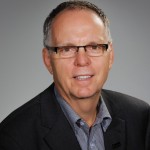 To help measure the effectiveness of my strategies, I engaged the services of the Best Christian Workplace. This tool gives me an accurate pulse of how the staff is doing and what areas I need to give attention to. It provides a mechanism for staff feedback and overall staff health. The data from this feedback helps me adjust my strategies in tweaking what is weak and building on what is strong.
To help measure the effectiveness of my strategies, I engaged the services of the Best Christian Workplace. This tool gives me an accurate pulse of how the staff is doing and what areas I need to give attention to. It provides a mechanism for staff feedback and overall staff health. The data from this feedback helps me adjust my strategies in tweaking what is weak and building on what is strong.
Over these 20 years as CEO I have learned the value of surrounding myself with good people. People who are passionate for the cause, committed to Christ and His church and competent in their skill set. I have learned that character is more important than skill and that people thrive in an environment where they have a cause and are able to express themselves in responding to that cause.
Dr. Barry Slauenwhite has been serving with Compassion Canada since 1983. He is a leading voice in the Canadian Christian community, speaking on behalf of the poor. Barry and his wife, Sharon, live in London, Ontario, and have two adult daughters and two grandchildren.















